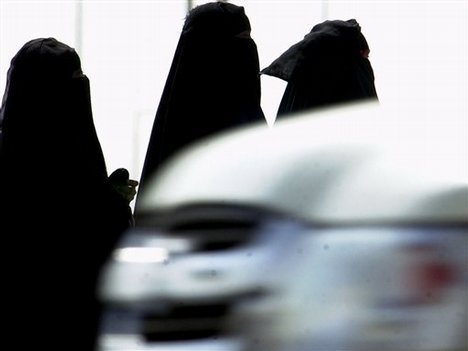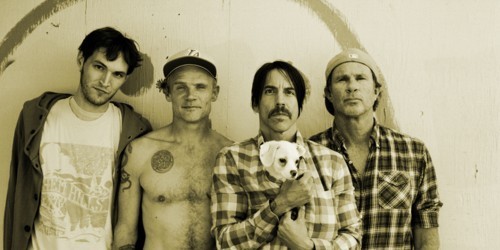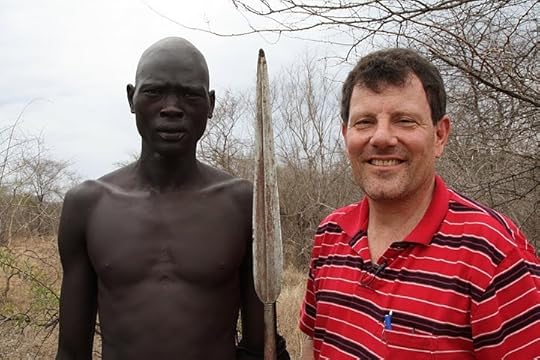Sean Jacobs's Blog, page 615
September 20, 2011
Serge Ibaka is Spanish
Listening to the Spanish commentaries in this video summary (and reading some biographies on the net), you'd be forgiven to believe Brazzaville-born NBA basketball player Serge 'Air Congo' Ibaka is from the DRC. But that's on the other side of the Congo River. He acquired a Spanish passport in July this year, so the Spanish national team welcomed him with open arms. And went on to win the European Championship on Sunday night. Thanks to Ibaka's blocking five French shots in eight minutes. Nice. A "taponaso," they call it.
Since arriving in the NBA's he has adopted well to American sports. Eurosport did a good feature on the rise of 'Iblockya' a while ago:








A Sitcom Waiting to Happen
Non-Arabic speaking peoples have a tendency to lump "Arabs" together, as though racial and economic hierarchies don't impact us as they do the rest of the world. The fact is, orientalism is common even in SWANA (South West Asia and North Africa) and it tends to be rooted in the same imperial racial and cultural classifications that the U.S., Canada and European nations invented and implemented all over the world. Divide and conquer. You get the picture.
Case in point: the most absurd news story I've seen this month. According to Nadim Kawach, reporting on behalf of Emirates 24/7, Saudi women are now "joining hands in another common cause—this time against the recruitment of housemaids from Morocco." Why? A Saudi daily paper states:
Some of them said Moroccan women are so attractive that their husbands could easily fall for them … others said Moroccans are good at magic and sorcery and that this could enable them to lure their husbands.
Magic and sorcery. Right.
To its credit, Kawach's piece does address some of the real problems migrant laborers, especially women, deal with in Saudi Arabia (not to mention the rest of the Middle East). But I would still like to nominate this for the 2011 SWANA Story Most Unrelated To The Arab Spring (And Reality) awards.








September 19, 2011
Red Hot Chili Peppers got lost in Ethiopia
The Red Hot Chili Peppers funk jam track Ethiopia came following "a life-changing trip Flea and Josh took to the African country." Josh says:
It was like a musical field trip. We had outings every day. It was like summer camp… and then Flea got lost and when he was lost, he went through a lot of emotions which is reflected on the album. It's the point where we were starting to really come together.
Flea recalls:
I got lost in a city called Harar. It was a really amazing experience that really changed everything. Damon Albarn had started African Express, basically a bunch of musicians go to a different country in Africa to jam with Africans, listen to African music and trip around. It was f***ing amazing. So we decided we'd go to Ethiopia. One day we got the bus and I got off the bus, walked down this little street, turned around and the bus was gone! I was lost. I walked around this little town for about an hour. No one speaks English and it's kind of crazy. I started getting scared. People were coming up to me and speaking to me but I didn't understand. Then one guy came up to me and he started speaking in broken English. He found my friends and helped me. So when I came home, I told that story to Anthony and he wrote that song. It's very special to me.








September 17, 2011
Music Break / Youssoupha
Kinshasa-born rapper Youssoupha moved to France at the age of 10. Ever since releasing his first tapes he's been strident in his critique of the French media's lazy depicting of the festering banlieues. In 2009, columnist Éric Zemmour filed a complaint against Youssoupha after being name-dropped in one of his songs. Back then, Youssoupha reacted in an open letter in Le Monde. And now through this new video.








Muisc Break / Youssoupha
Kinshasa-born rapper Youssoupha moved to France at the age of 10. Ever since releasing his first tapes he's been strident in his critique of the French media's lazy depicting of the festering banlieues. In 2009, columnist Éric Zemmour filed a complaint against Youssoupha after being name-dropped in one of his songs. Back then, Youssoupha reacted in an open letter in Le Monde. And now through this new video.








Lagos Street Scene
"Once"
A former The New School student, Pablo Mediavilla Costa, shot this meditative short documentary film around Ground Zero in Lower Manhattan the evening of September 11, 2011.








September 16, 2011
Music Break / Nneka
Father figure
Filmmaker Kurt Orderson sent me "The Unseen Ones," his new 19-minute musical documentary about the very talented Cape Town rasta rapper Nico10long working on his new self-titled EP (produced by Martin Muller). The dialogue is mostly in Afrikaans with subtitles. Rastafari's appeal, gangsterism, HIV-AIDS, and identity politics, all get a turn. Fellow MC's Benji Tafari and Silver Tongue make guest appearances. The film concludes with Nico10long's new video for the single "Vaderfiguur" (translated: "Father Figure").








Nicholas Kristof Saves Another Woman
By Dan Moshenberg
He's ba-a-a-ack! After a decade or so of "saving" South East Asian sex workers from "slavery", sometimes by actually purchasing them, Nicholas Kristof has found Africa. Kenya, to be specific, and there too, sex workers, or in his words "prostitutes", await.
Kristof tells the story of Jane Ngoiri, a 38-year-old single mother of two, former slum dweller, now "prostitute-turned-businesswoman." With the help of a group called Jamii Bora, formed initially by 50 "street beggars", Ngoiri developed skills, learned to save, grew.
Then "catastrophe struck". Ngoiri's daughter was in an accident. Medical expenses were crushing. She had to take her son out of school. Fortunately, Kristof was there! He and his peeps collected money, and without having to resort to "street begging" or "prostitution", and Ngoiri's son is now back in school.
Kristof's takeaway. Life for the poor in Kenya is terribly "fragile".
But what is Kenya?
From Kristof's account, it's just another Third World site of pathos, despair, degradation, and fallen women waiting to be saved.
Kristof's article couldn't come at a more ironic moment. In Kenya, this past week has been described as "a week of tears." A pipeline exploded, killing scores. It turns out, experts had warned about this very possibility. And who dies, or better who is killed? The poor. And who is culpable? The oil and gas companies and the State that conspire to not care about safety precautions. And so now, the stories emerge of the tally of the dead, of the tearful reunions of the survivors and their grateful loved ones.
These past couple days in Kenya have seen fires, violence against girls, drought. And more …
Kenyan small hold farmers, for example, are the vanguard of African agricultural development, as they are warriors in the various battles to combat climate change. And who are those small hold farmers? Women. Women like Wayua Mwanza, 36-years-old, and a mother of three. Kenyan women farmers teaching and learning from … Kenyan women farmers!
As Somali women refugees move into Kenya, and in particular Dadaab, reputed by some to be the largest refugee camp or settlement in the world, many of them encounter antenatal clinics for the first time. That antenatal treatment is provided by Kenyan women, in ngo's and in State agencies, as well as by non-Kenyans in various multinational ngo's. Kenyan women teaching and working with … Somali women!
Earlier this week Cecillia Ng'etich, a candidate for public office in the Rift Valley, argued forcefully for women's right to return to school, and for their partners' responsibility to support them in that endeavor.
Life for the working poor, and especially for low- and no-income women, is always fragile … everywhere. And women cannot and are not waiting for some prince in shining white armor to come and rescue them. Women are organizing, at home, in the streets, in the shops, on the farms, in the refugee and IDP camps, in government, everywhere. Tell the story, but tell it right.
* And, yes that is Kristof with an African tribesman. It's from his own collection.








Sean Jacobs's Blog
- Sean Jacobs's profile
- 4 followers























